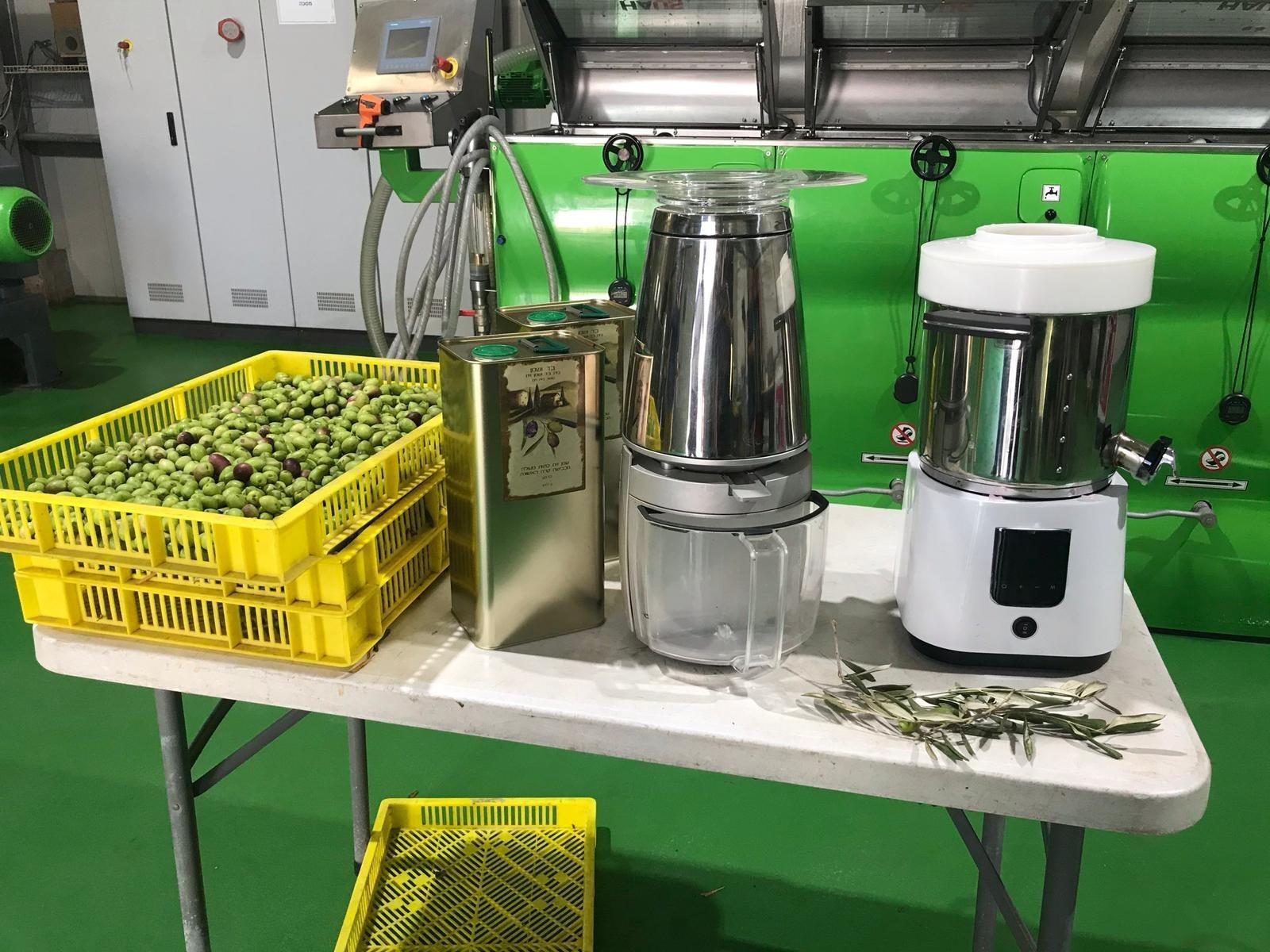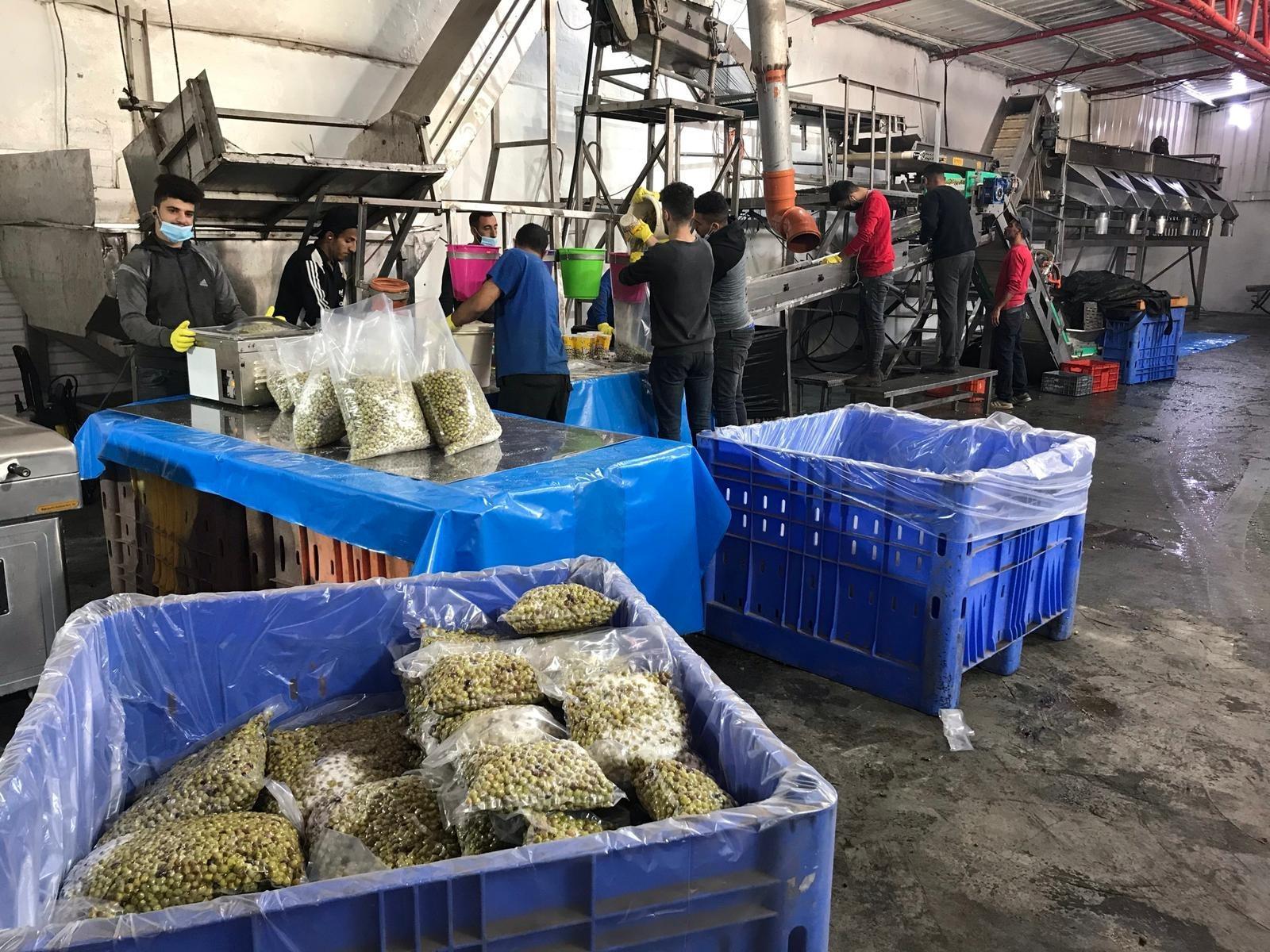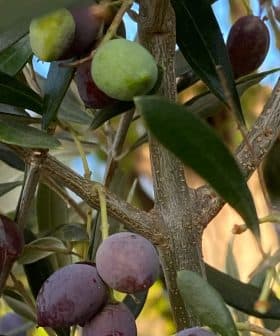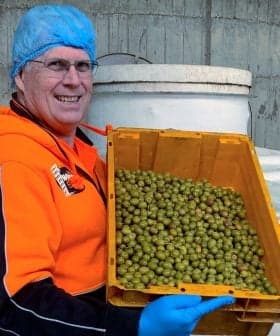 27.7K reads
27.7K readsNews Briefs
Israeli Firm Prepares to Launch Countertop Olive Oil Appliance

After over a decade of development, Israeli entrepreneurs are preparing to launch the Olive X‑Press, a countertop olive oil production appliance that can transform olives into oil at home in 45 minutes. The device combines grinding, malaxing, and decanting steps into a compact machine, using pressure instead of friction to extract the oil, with plans to introduce it to the market before the 2024 olive harvest at a price of about $250.
After over a decade of development, a team of Israeli entrepreneurs say they are preparing to launch a countertop olive oil production appliance: the Olive X‑Press.
Like the Spanish Olimaker, launched in 2020, the device would allow consumers to transform 3 kilograms of freshly harvested or specially treated and vacuum-packaged olives into olive oil at home in 45 minutes.
“This is the smallest olive pressing machine in the world,” Nir Padan, the chief executive of Olive X‑Press, told Olive Oil Times. “This was a very challenging project. It is not easy to create such a machine.”
Padan said the biggest hurdle to overcome was combining the three main steps of olive oil production – grinding, malaxing and decanting – into a countertop appliance “the size of a coffee machine.”
See Also:Olive Oil Producer Raises €500K Through Crypto Bonds“To penetrate the home kitchen, you want to have only one engine. You want to have a very silent machine, small and easy to wash,” he said, adding that they must also be easy to assemble and disassemble. “This is totally different type of venture.”
In a patent submitted to authorities in the United States, the inventors said they ultimately decided to use pressure instead of friction, the method employed in hammermills, to extract the oil. The former method transforms the olives at lower temperatures and more quietly.
“The present invention is aimed at providing a low speed, low torque process for breaking the olive stone,” the inventors wrote in the patent. “The low-speed process prevents overheating during olive processing.”
“Additionally, low torque and speed result in a small, light and low energy consumption motor, which is suitable for a home appliance,” they added. “Low speed also reduces noises and enables sharing the same rotational speed of different phases in the process.”
The Olive X‑Press resembles a cross between an ordinary food processor and a coffee machine. While the final design has not been completed, Padan indicated that an outer cover would house the device and its external motor.
“After we provide the working mechanism in widespread tests, we will go into detail about the outer shape and design, which will make the product a very nice-looking machine for retail,” Padan said.
The device is a frustum, a conical cylinder with a smaller top diameter and larger base diameter. Olives are placed on a platform on the device and introduced to the crusher.
Once the pit is crushed, the resulting olive paste filters down to a malaxation bowl at the bottom of the frustum, where the paste is kneaded for 30 to 40 minutes to increase the size of the oil droplets.
Afterward, the malaxed paste is pressed to separate the solids from the liquids – water and olive oil. The liquid then passes through a vertical filter, and the olive oil is further separated from the water by density.
Padan said the prototype would undergo rigorous testing and should be ready for a limited market introduction before the 2024 olive harvest. He expects to sell the appliance for about $250 (€233).
“Before the next harvest season in the northern hemisphere, we will sell household countertops in the world using dealers,” he said. “We will start with the people who grow olives, who live near olive trees.”
Along with selling the appliance, Padan said the company would make most of its revenue from selling the vacuum-packaged olives to transform in the appliance, comparing the approach to those of Nespresso pods.
“This means that we had to develop an extended shelf life for fresh olives,” he said. “The problem we had to solve. Previously, the only way today to press a high-quality oil is on the day of the harvest.”
“To solve this, we are giving the olives a natural treatment, which is nonchemical,” Padan added, “After this treatment, we are closing the olives in a vacuum package. Also, we store the packaged olives in the fridge. The packaged olives can be used for more than one year in order to press a fresh olive oil.”
Padan said the treatment included antioxidants but declined to go into specifics, citing the need to remain competitive.
The company plans to license the technology, X‑Tend, to allow olive growers worldwide to prepare olives for the machine using the process that could be sold to consumers.
Padan said this would also create a wide variety of options, from mild Arbequinas and pungent Coratinas to far less common varieties usually confined to small geographies.

Olive X‑Press packages olives using their patented technology for use in the appliance.
Padan insists that the olive oil created by the Olive X‑Press tastes just as good as freshly milled extra virgin olive oil. His claim has been supported by Zohar Kerem, a professor of food chemistry at the Hebrew University of Jerusalem, who consulted on the project.
Kerem and his team analyzed the olive oil produced by the Olive X‑Press using standard physiochemical and organoleptic tests to determine the olive oil grade and quality.
Describing the results of his study in a letter to Padan, which was seen by Olive Oil Times, Kerem said the levels of health-promoting compounds, including polyphenols, in olive oil produced by the Olive X‑Press were similar to fresh extra virgin olive oils.
The researchers also found the olive oil produced by the Olive X‑Press has a shelf-life similar to conventionally produced olive oil.
“An oil produced from fruits treated and stored as above is equal in composition to oil pressed today by commercial mills,” Kerem wrote. “The Olive X‑Tend novel technology has actually extended the harvest season and fresh olive oil availability from three months to year-round.”
Ahead of the initial release of the Olive X‑Press for retail, Padan is busy traveling, looking for customers and fundraising. He said the company had already raised $3.5 million (€3.26 million) for the project and plans to continue these efforts, including a September visit to New York City to meet investors.
When Olive Oil Times first contacted Padan to discuss the device, he answered the phone from a busy restaurant in Tokyo after signing a memorandum of understanding with his first client.
“They will be the first to purchase our countertop and go to market with the machine,” Padan said.
He believes that Japan is an ideal market to launch the device. According to the International Olive Council, Japan consumed 57,000 tons of olive oil in the 2021/22 crop year. Separate data from the Spanish Institute of Foreign Trade found per capita consumption remains at 0.4 liters per annum.
However, Padan is betting on Olive X‑Press to deliver the high-quality products that Japanese consumers seek.
“I can see it clearly now a few times after visiting,” he said. “The Japanese consumer really appreciates high-quality and fresh food, and they are willing to pay.”









